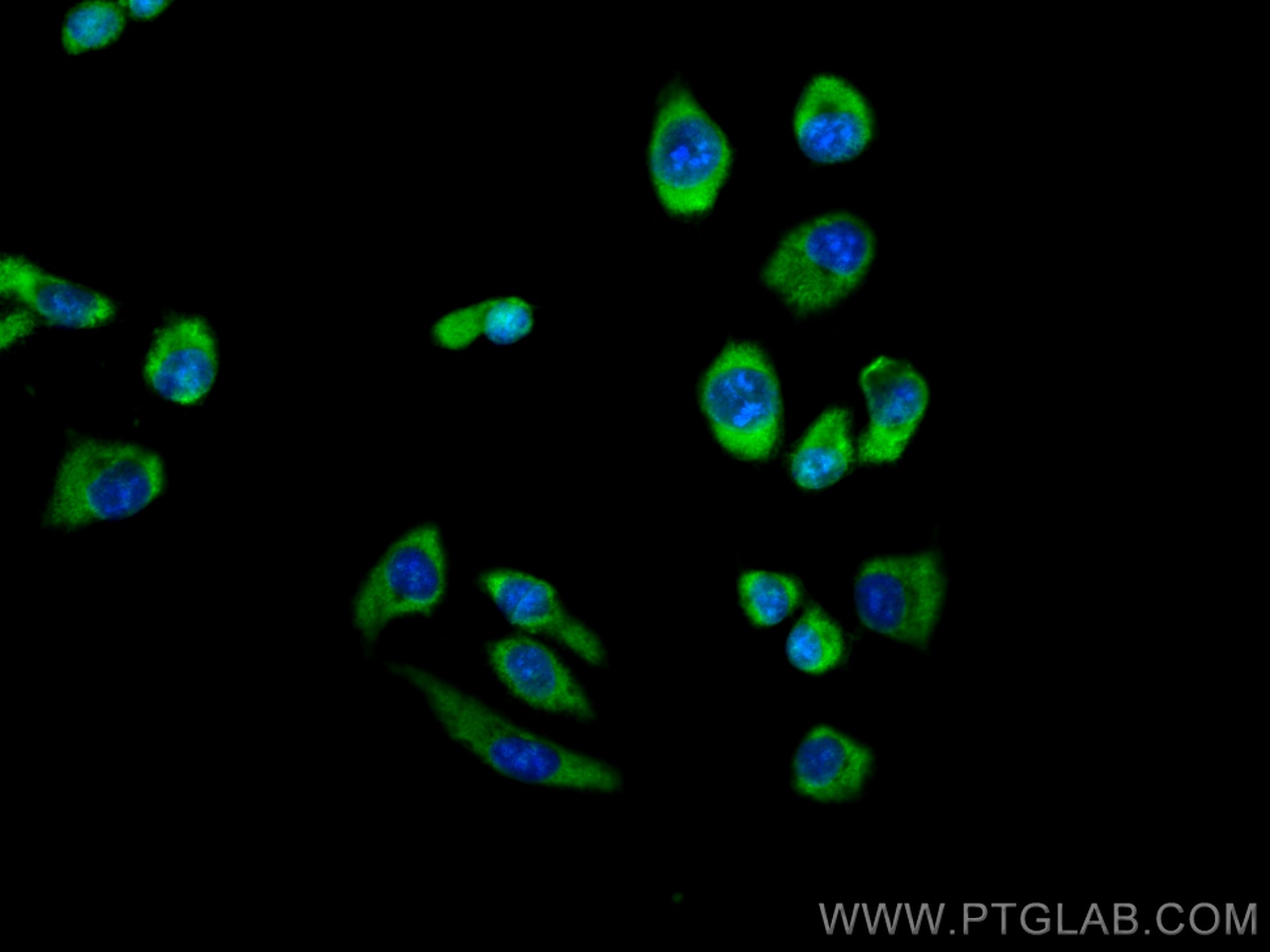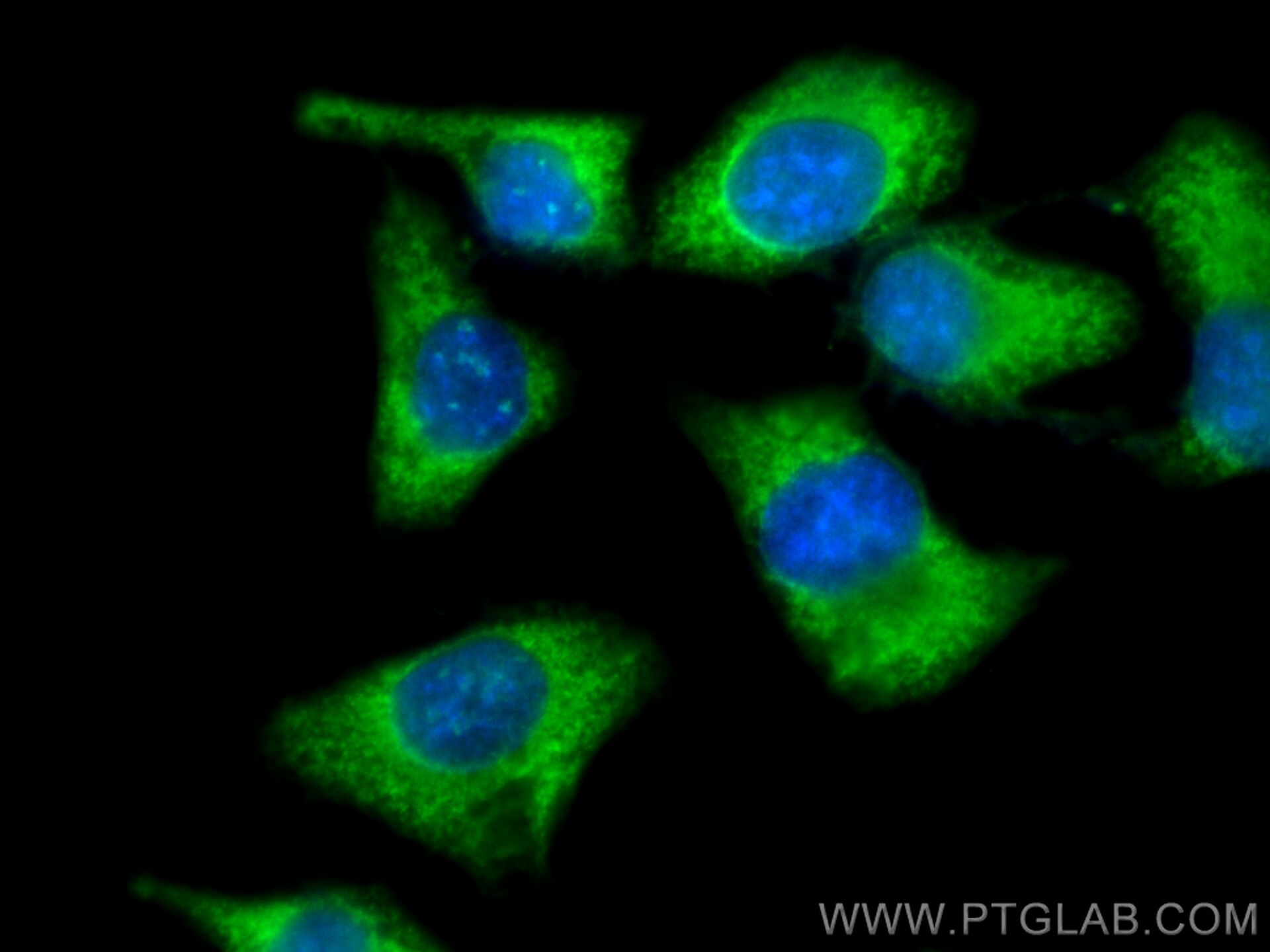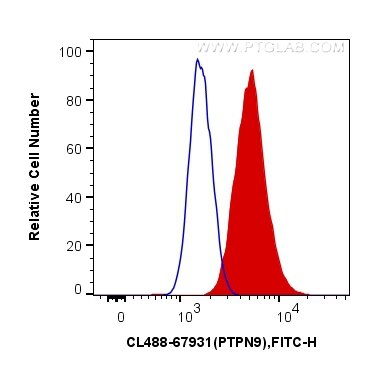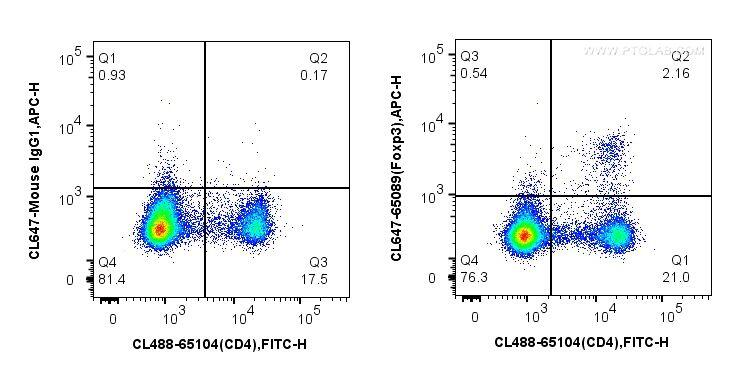Anticorps Monoclonal anti-PTPN9
PTPN9 Monoclonal Antibody for FC (Intra), IF
Hôte / Isotype
Mouse / IgG1
Réactivité testée
Humain, porc, souris
Applications
IF, FC (Intra)
Conjugaison
CoraLite® Plus 488 Fluorescent Dye
CloneNo.
1D6E4
N° de cat : CL488-67931
Synonymes
Galerie de données de validation
Applications testées
| Résultats positifs en IF | cellules U2OS, |
| Résultats positifs en cytométrie | cellules MCF-7 |
Dilution recommandée
| Application | Dilution |
|---|---|
| Immunofluorescence (IF) | IF : 1:50-1:500 |
| Flow Cytometry (FC) | FC : 0.40 ug per 10^6 cells in a 100 µl suspension |
| It is recommended that this reagent should be titrated in each testing system to obtain optimal results. | |
| Sample-dependent, check data in validation data gallery | |
Informations sur le produit
CL488-67931 cible PTPN9 dans les applications de IF, FC (Intra) et montre une réactivité avec des échantillons Humain, porc, souris
| Réactivité | Humain, porc, souris |
| Hôte / Isotype | Mouse / IgG1 |
| Clonalité | Monoclonal |
| Type | Anticorps |
| Immunogène | PTPN9 Protéine recombinante Ag30615 |
| Nom complet | protein tyrosine phosphatase, non-receptor type 9 |
| Masse moléculaire calculée | 593 aa, 68 kDa |
| Poids moléculaire observé | 68 kDa |
| Numéro d’acquisition GenBank | BC010863 |
| Symbole du gène | PTPN9 |
| Identification du gène (NCBI) | 5780 |
| Conjugaison | CoraLite® Plus 488 Fluorescent Dye |
| Excitation/Emission maxima wavelengths | 493 nm / 522 nm |
| Forme | Liquide |
| Méthode de purification | Purification par protéine G |
| Tampon de stockage | PBS avec glycérol à 50 %, Proclin300 à 0,05 % et BSA à 0,5 %, pH 7,3. |
| Conditions de stockage | Stocker à -20 °C. Éviter toute exposition à la lumière. Stable pendant un an après l'expédition. L'aliquotage n'est pas nécessaire pour le stockage à -20oC Les 20ul contiennent 0,1% de BSA. |
Informations générales
PTPN9, Tyrosine-protein phosphatase non-receptor type 9, is a member of the protein tyrosine phosphatase (PTP) family. PTPs are signaling molecules that regulate a variety of cellular processes including cell growth, differentiation, mitotic cycle, and oncogenic transformation. PTPN9 is involved in the transfer of hydrophobic ligands or in functions of the Golgi apparatus (PMID: 19167335). MiR-96 inhibits PTPN9 expression and consequently promotes proliferation, migration and invasion of breast cancer cells (PMID:27857177).
Protocole
| Product Specific Protocols | |
|---|---|
| IF protocol for CL Plus 488 PTPN9 antibody CL488-67931 | Download protocol |
| FC protocol for CL Plus 488 PTPN9 antibody CL488-67931 | Download protocol |
| Standard Protocols | |
|---|---|
| Click here to view our Standard Protocols |





